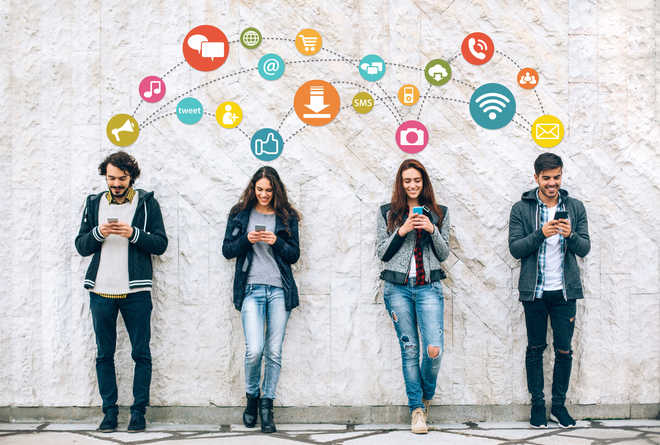Is quitting social media the key to millennial happiness?
Olivia Blair
In my daily routine, both the first and last things I do, in bed, are to scroll through Facebook and Instagram looking both at the news and what all my friends are up to.
It then permeates through the rest of my day too: I check Twitter on my commute and read any notifications that light up my phone throughout the day.
Social media has become second nature to us millennials but is the fact that we are never truly switched off doing us harm?
The first hurdle is popularity. For example, the worry when you share a carefully filtered photo on Instagram and wait for the likes to — hopefully — rack up leading your brain to somehow equate your popularity and value IRL with how many people enjoyed that photo of your eggs benedict at the weekend.
But how many followers you have on Twitter does not mean you have that many actual friends. If you have a lot of followers, the fear of making a blunder and causing outrage is also omnipresent.
Social media makes us think we are just having conversations with friends but the amount of time we spend ogling wealthy, beautiful and seemingly perfect strangers on Instagram and comparing our lives and appearances with theirs only fuels existing insecurities. As does that Snapchat story of all your friends at the party you couldn’t attend, which to be honest was probably rubbish apart from that moment they all collectively posed for a selfie.
The rationale that nobody’s life is perfect and that what they share online is carefully curated often goes out the window. The never-ending stream of tweets, updates, pictures and news can feel overwhelming and you could feel missing something if you do not read all of it. So is it healthy to take that odd break once in a while?
A 2012 study by Anxiety UK found that 45 per cent of people who are not able to access their social networks or email felt worried or uncomfortable. Sixty per cent said they felt the need to completely switch off their phones and computers in order to have a proper break.
Ben Jacobs, a DJ with over 5,000 Twitter followers, took an indefinite hiatus from Twitter last January and, so far, has not looked back. “I found myself devoting an unhealthy proportion of my spare time on Twitter,” he said. “I was one of those people who would wake up in a cold sweat at 3am and drag down the little glass rectangle to see if I had received any responses to my latest pithy proclamation. Since then, I have had a clearer head with plenty of time to devote to other things such as waking up in a cold sweat at 3am and reading a book instead,” the 42-year-old said.
Stina Sanders, a model with 119,000 followers on Instagram, has been open about her struggles with anxiety on social media. She says that while she notices social media affecting her anxiety, she does not think it causes it. "It affects people in different ways. I know I can get FOMO when I see my friend's photos of a party that I didn't go to, and this can make me feel lonely and anxious. On the other hand, if I'm feeling great in myself, I've noticed that I don't get as anxious when I'm on social media." As social media is a vital part of her job, she is unlikely to delete her accounts anytime soon. However, when she notices it getting too much, she takes a break from her phone. "It helps to remind me that social media isn't real. It is a projection of what people want you to see."
Nicky Lidbetter, the CEO of Anxiety UK, said: “If you are predisposed to anxiety, it seems that the pressures from technology act as a tipping point, making people feel more insecure and more overwhelmed.
“The rise in social media has had an effect, with people comparing their lives with others and young people feeling socially anxious about communicating face-to-face.”
Of course, social media has also brought us great things: The ability to connect to loved ones across the world within a matter of seconds, a huge encyclopaedia at our disposal for information, forums and support groups for people experiencing bullying, health and mental health issues and instant news. But a regular break back into the real world every now and again can only be a good thing, right?
— The Independent
Unlock Exclusive Insights with The Tribune Premium
Take your experience further with Premium access.
Thought-provoking Opinions, Expert Analysis, In-depth Insights and other Member Only Benefits
Already a Member? Sign In Now










